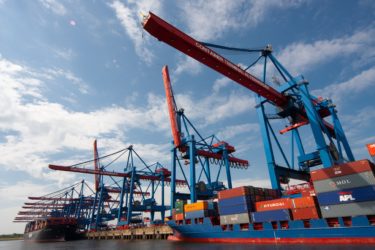Recent Release | 10 Mar 2023
The case for a permanent investment deduction

Scenarios & Macroeconomic Modelling
Oxford Economics

This report is CBI‘s business case for a successor to the super-deduction regime. It investigates policy options the UK can deploy to maintain its global tax competitiveness and avoid a drop in business investment.
Background to the research:
- Investment incentives are set to fall in the UK. In April 2023, the Corporation Tax rate is set to increase from 19% to 25% at the same time as the end of the super-deduction regime.
- Before the super-deduction was introduced the UK ranked 30th out of 37 countries in the OECD for capital allowances and it could return there once the super-deduction ends.
CBI analysis, conducted in collaboration with Oxford Economics, shows that a permanent investment deduction (100% full expensing) could unlock:
- A 21% (£52.8bn) increase in the level of business investment per year by 2030/31.
- An increase in the level of GDP by 2.0% (£53.1bn) by 2030/31.
- While there is an upfront cost, the long-run net balance sheet impact is positive for Government.
The experts behind the research
Felicity and Daniel, members of the Scenarios and Macro Modelling team, are world leaders in quantitative economic analysis, working with clients around the globe and across sectors to build models, forecast markets and evaluate interventions using state-of-the art techniques.

Felicity Hannon
Associate Director, Climate Scenarios & Macroeconomic Modelling

Daniel Moseley
Lead Economist, Scenarios and Macro Modelling
You might be interested in

Greater downside risks are explored in our Q4 IFRS9 and CECL scenarios
he Q4 update of our IFRS9 and CECL scenarios services paints a more pessimistic view of the balance of risks to the global economy, albeit with a lower peak in policy rates and higher terminal rates than we saw in Q3.
Find Out More
Arabian Gulf Business Insight: Oman is on the up but not out of the woods
Scott Livermore, our Chief Middle Economist, joins AGBI to discuss the outlook for Oman as well as the government's measures.
Find Out More
Australian Macroeconomic Energy Transition Scenarios
AEMO publishes this Draft 2023 Inputs, Assumptions and Scenarios Report (IASR) pursuant to National Electricity Rules (NER) 5.22.8. This report includes key information and context for the inputs and assumptions used in AEMO’s Forecasting and Planning publications for the National Electricity Market (NEM).
Find Out More
Our new global trade service: TradePrism
TradePrism is the most comprehensive forecasting service for trade. Offering 1200 product-level forecasts of trade between 46 major economies, and high-level indicators for an additional 137 economies delivered through an interactive data visualisation platform allows organisations to understand the key trends across global trade.
Find Out More